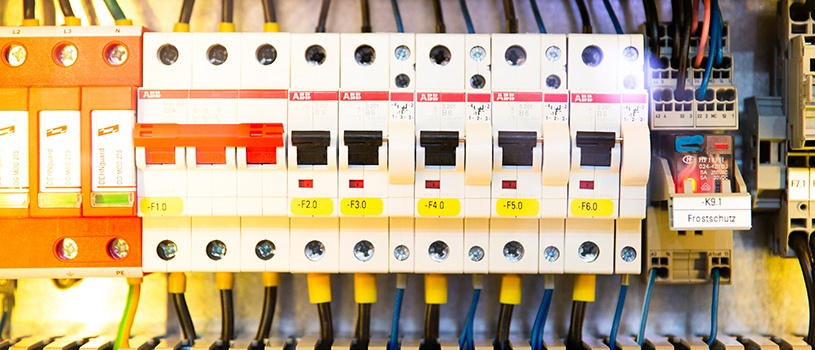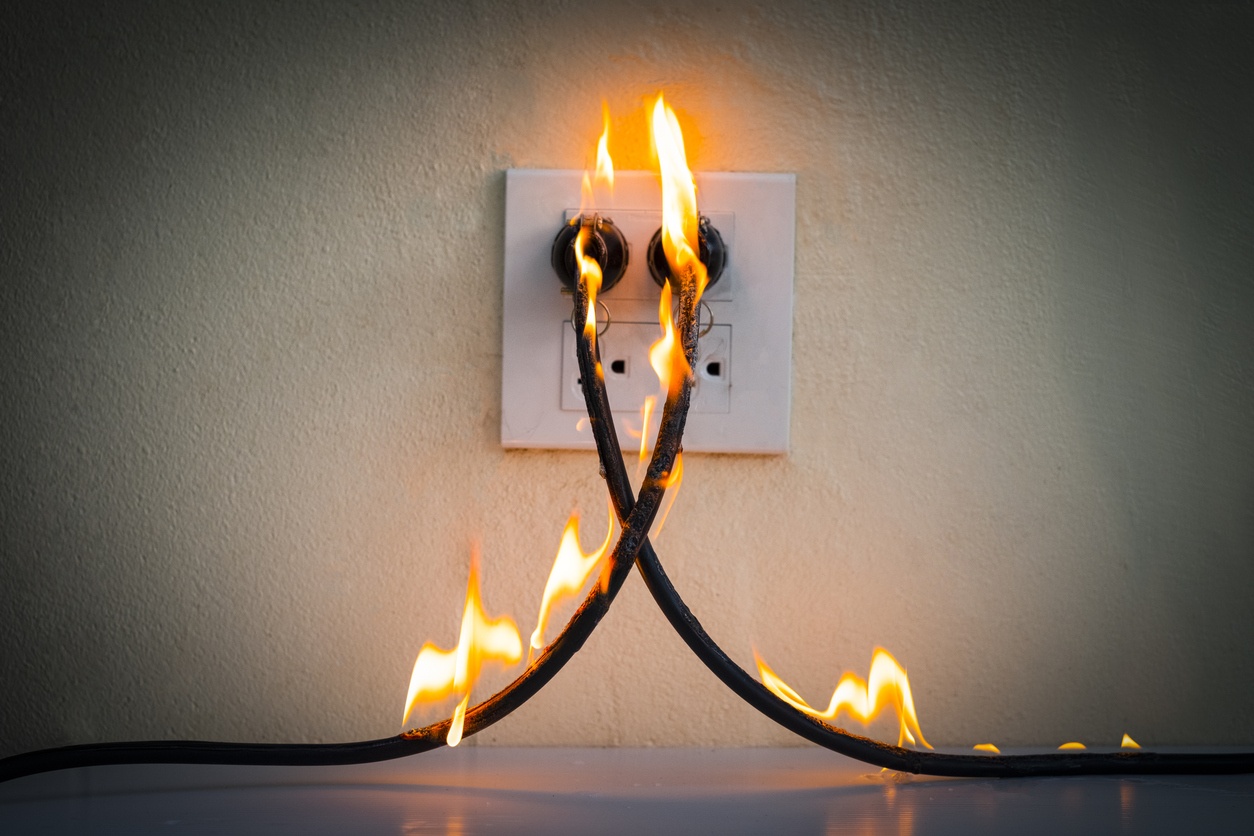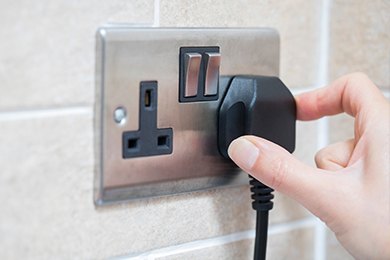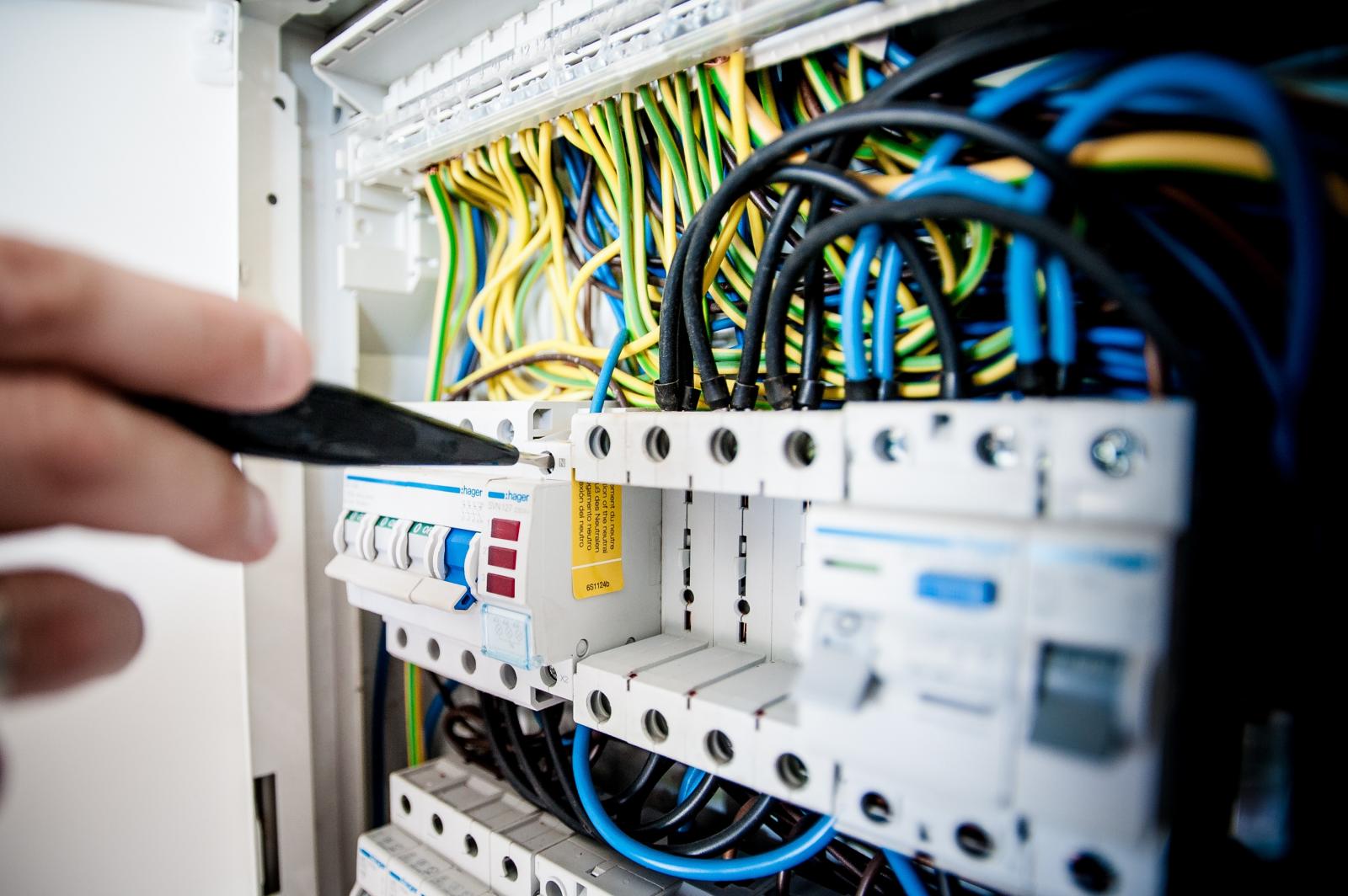What Are Electrical Inspection Condition Reports
- Posted by:
- Admin
- Tags:
- Posted date:
- 25-04-2022

What are electrical inspection condition reports? This article looks at electrical safety inspections and what do the regulations say? Find out what you need to know about electrical inspection condition reports.
Electrical Safety Inspections (Installations and Appliances)
The Electrical Safety Standards in the England Private Rented Sector Regulations 2020 went into force on June 1st and will apply to all tenancies starting on or after that date in England.
Landlords must have their electrical systems inspected and tested every five years by a licenced and experienced specialist, with renters and, if required, local governments receiving a copy of the electrical safety report.
There are a number of ways and methods that electrical engineers can use to assess your electrics and choose whether or not to have any dangerous systems removed. Investing in an experienced company can leave a huge impact on the type of electrical system you use.
From domestic to commercial, each case is different in size and type; therefore, it's essential to choose an electrical service that works for you. Read through our guide to discover the information and results you need.
Our copies and guides of electrical checking share not just the black and white facts but everything in between. Each section of this guide highlights the types of surveys you can have for many reasons; this results in a mass of recommendations for experienced electrical companies across many areas.
Damaged Electrics
If your electrics are damaged for any reason, an examination and repairs are required to prevent the system from being problematic a second time.
It is critical that you have an acceptable guide on the numerous situations and changes that inspecting your electrics may create; we like emphasising these aspects and just clearing the air on the many reasons you may require an electrical inspection.
With our guide, we can constantly recommend the types of services you need to have your electrics fixed in time. If your electrical systems are damaged for a number of years, it can become highly dangerous; therefore, householders need to have their main electric system checked every few years to ensure that - in time - no issues arise.

Reasons why electrical assessments are required
Your primary system will need to be monitored and touched up over time to ensure that no risks occur in your house. There are several general reasons why electrical assessments are required.
The most important is because wires are exposed to households, water, and children. The wires transporting electricity through your home might become loose over time, causing the faulty system to harm adults, children, and homeowners.
If you notice this problem in your house, it's time to bring in the professionals. We recommend choosing an electrical company whose engineers have years of training and experience.
There are many types of electrical issues that come in all shapes and sizes, so it's best to choose a company that has a grasp on every problem in general. By doing this, only the best service will be received; if you need any more information, feel free to get in touch.

Code C1 Electrical Problems
C1 problems include exposed live wires resulting from damage, incorrectly adjusted enclosures, or removed maintenance panels.
Incorrect polarity can also result in code C1 because it causes conductive areas that should not be live to become live.
When a C1 hazard is detected, your electrical engineer will swiftly alert the duty holder or responsible person for the installation of the potential for injury, both orally and in writing.
Access to the troublesome circuit may be restricted, or the circuit may be turned off until the problem is rectified.
A Code 2 (C2) issue is less serious than a C1, yet it is still a potentially harmful flaw.
Code C2 Electrical Faults
They may not be a threat right now, but they are likely to become one in the future. A C2 is defined as 'potentially harmful and immediate corrective action necessary.' The word "possibly dangerous" in the C2 code is intended to indicate a risk of injury from contact with live parts following a series of occurrences.
A series of circumstances might result in individual gaining access to live parts through a routine action that would not normally be expected to provide access to live parts. A Code 3 (C3) observation indicates that 'Improvement Is Recommended.'
This code indicates that a violation of the current safety standard has been discovered. While this does not provide an immediate or possible hazard, correcting it would result in a considerable safety improvement.
We understand how essential electrical systems are to a home. Therefore, it's the general consensus to have servers inspected and risks reduced; we can help you find the inspection company that works for you and provides the results you need.
These tests and inspections summarise the signs and data into a prepared document to equally organise both benefits and limitations of your electrical system; these attributed categories are deemed efficient regarding legislation.
Carrying out electrical inspections
The assessed condition is reviewed and documented into a readable article describing the account.
Carrying out electrical inspections doesn't invalidate the home you occupy, and the inspection course is carried out shortly and on a schedule that you are aware of.
If you want a new system, we can ensure that any installation is safe and professionals get competent training at regular intervals. This is the most effective technique to build a secure site for consumers and clients.
Prior to requesting an enquiry, each electrical company has the necessary qualifications in accordance with the codes and conducts of OFTEC. Each team member follows the criteria needed to produce the best electric and boiler performance in the industry.
When it comes to houses, there's a duty and responsibility to subject your electrical system to a responsible investigation and inspection following the guidance of the OFTEC regulations.
Being supplied with this process is great for accumulating evidence and reducing any reported risks or possible injury.
Electrical surveys are produced on a higher percentage compared to most inspections due to the damage that wear and tear can cause, such as fires.
These fixed inspections are requested and valid to reduce any system failures and other issues you can end up suffering from.

Repairs and New Instalments
When it comes to the inspector, everything should be explained with your compliance and consent. There are two types of improvements that can be adhered to - repairs and new instalments.
This can ensure the safety of your home as well as secure the power and lighting across your properties.
Any electrical employees have the suitable knowledge to ease any concerns you may have and present the details needed to improve your system for the future.
It's important to have any faults and costs covered by insurance if anything goes wrong. To limit the danger of defective appliances, remove any cabinets and plaster and get your electrics tested if you're selling your property.
When you're selling or have already sold your house, it's critical to inspect and replace your electrical system. Discussing your electrical inspection requirements entails locating the best business for you in England and Wales. Our guide was created to provide you with peace of mind.

Wooden floors are especially susceptible to moisture damage.
Excessive moisture in wood floors can cause warping, buckling, crowning, or cupping, which can cause the boards to rip away from the subfloor.
Your hardwood floor may grow stained over time. This is essential to know when it's time to have your electrical inspection.
The severity of the electrical hazard can be down to the floors that registered customers have purchased.
Remember the timeframe of your inspection, and don't forget to inspect your floor too for moisture, you don't want the plaster to deteriorate and your wires to be exposed.
The ability of switches, sockets, and lighting fixtures to be serviced.
Older round-pin sockets, round light switches, fabric-coated wires dangling from ceiling roses to light fittings, and black switches and sockets positioned in skirting boards are all items that may need to be replaced.
Condition of the wiring system
The kind and condition of the wiring system. Cables covered with black rubber, for example, were phased out in the 1960s. Lead or fabric-coated wires, on the other hand, are considerably older and may need to be replaced.
Braided flex dangling from ceiling roses, brown (or black) switches or plugs positioned in or without skirting boards indicate that your house is old and should be evaluated.
Your registered electrician can provide you with further information on any faulty and old wiring as well as EICR reports, IET writing regulations and electrical reports on your electrical wiring.
Your qualified electrician should also be able to provide a visual condition report for any rental properties or electrical installations. For consumer units, an electrical safety certificate should be provided alongside any installation condition report EICR.
What do the Regulations Say?
Every electrical installation in a private landlord's home premises must be examined and tested by a certified and competent person every 5 years.
The regulations go into effect in England on July 1, 2020, for all newly designated tenancies, and on April 1, 2021, for all existing specified leases. Any tenancy created on or after June 1, 2020, is referred to as a 'new specified tenancy.'
If a tenant requests that a copy be forwarded to the local housing authority, the private landlord must do so within seven days after receiving the written request.
The landlord must get a report from the person who performed the inspection and testing, including the inspection and testing findings and the date for the next inspection and testing.
Landlords must also preserve a copy of the report until the next inspection and test and give a copy to the person performing the next inspection and test.
Finally, they must deliver a copy of the most recent report to each new tenant of the defined tenancy to whom the report relates and any prospective renter within 28 days after receiving a written request for it.
Mandatory Electrical Safety Inspections (EICRs) For Rental Property:
What does an Electrical Inspection and Test Involve?
A properly qualified and licenced engineer should conduct Electrical Installation Condition Reports (EICRs), sometimes known as 'periodic inspections.'
The inspection's goal is to locate any potential fire dangers or electric shock risks, as well as to identify any poor electrical work, detect any absence of earthing or bonding, and pinpoint any electrical circuit or equipment overloading.
Landlords must ensure that their inspection is conducted by a licenced electrical engineer, as local governments and rental brokers will only recognise certifications provided by trained individuals.
Any damage, flaws, or harmful situations discovered will be documented in an EICR. The electrical installation will be designated "unsatisfactory", and remedial action will be required if the property is found hazardous.
EICRs can be issued for landlord-created tenancies, rental accommodation, change of occupancy, and a new tenancy of a new property - in general, any occupancy.
An EICR performed on your property will preserve a record of the sampling rate, current rules, phone lines, skirting boards, rectification work, and other vital information.
Landlords electrical inspections
Most landlords in the private rental sector will not need to adjust their behaviour.
The majority of landlords currently conduct regular inspections of their installations to provide the safest houses possible.
NAPIT has provided the following guidelines to ensure that every landlord can comply with these standards.
EICRs (also known as periodic inspection and testing of an electrical installation) are designed to assess, as far as is practically possible, whether the installation is in a suitable condition for ongoing operation.
Landlords and businesses throughout the UK are obligated to have EICR tests as conduits can begin to wear away and leak; these observations refrain from hazards developing to the extent that they can cause harm.

Note that these inspections should not be taken lightly from beginning to end. EICRs have renewals every 5 years; this ensures a value for money and a summary of risks that could be produced.
EICRs serve as benefits to homes since any issues can be immediately dealt with for competitive prices. These periodic inspections are recommended by most members of an electrical inspection company.
Electrical surveys are also needed if there's a change of tenancy; the main causes for this are to prove and ensure that the system is in good condition - this includes components such as wall switches, wiring, cables, sockets and electricity supply.
Electricians are trained to carry out these tests and assessments at a sample size; this generally leads to all types of electrical appliances being checked.
What Happens if My Electrics are Unsafe?
If the evaluation indicates that the property is not electrically safe, the landlord must have the report's suggestions examined and corrected by a qualified person.
This work must be done within 28 days of the inspection date or within the time frame specified in the report if it is completed sooner.
The landlord must obtain written confirmation from the qualified individual that the work was performed to their satisfaction and that all electrical safety regulations were adhered to.
The tenant and the local authorities must get this confirmation and a copy of the original report.
Faults occur in domestic properties when the sockets mounted are potentially dangerous; this arises at high temperatures as it can start fires.
Periodic inspection reports and condition reports are mandatory when these faults are found as the remedial work will need to be completed immediately, following the maximum periods of the investigation required.
For any commercial property or local authority, further investigations and EICR inspections need to occur if there are any faults with light switches, cast iron switches, fixed cables and fuse boxes. It's a legal requirement to have EICR work carried out if properties contain a swimming pool due to the risk of electrical shocks.
Wiring regulations need to be carried out to ensure that the property remains electrically safe against electric shocks, electrical fires and multiple occupations for disaster. Any fuse damage needs immediate remedial action by an approved contractor as it can affect safety.
What are the Fines for Unsafe Electrics?
If a local government believes a landlord is breaking the rules, it must send a correction notice to the landlord, who then has to implement the advice.
A notice of intent to levy a financial penalty may be issued if a local government finds that a private landlord has breached the standards beyond a reasonable doubt.
The local council determines the amount of the punishment; however, it cannot exceed £30,000.
What Types of Tenancy are Excluded?
These restrictions apply to most tenancies, including regulated tenancies (pre-1989) and HMOs. There are a few types of tenancies that the regulations do not apply to.
Any tenancy in which the occupier shares accommodation with the landlord or a member of the landlord's family, a long lease tenancy or a tenancy that grants right of occupation for 7 years or more, student housing, hostels, refuges, care homes, hospices, hospitals, and other healthcare buildings are all examples.
Do New Builds Need an EICR and Electrical Inspection?
Electrical Installation Certificates, or EICs, are required for new construction.
You won't require an Electrical Installation Condition Report (EICR) until five years after your EICR has been issued if your rental property is brand new or has been entirely rewired.
Do I Need an EICR if I Had a Rewire in the Last Five Years?
You should get an Electrical Installation Certificate if your home has been entirely rewired (EICR).
Landlords will not be required to conduct additional checks or arrange for an EICR until five years after the EICR has been issued if they follow the requirements.
Landlords can give renters and, if necessary, the local government a copy of the EICR.
We hope this article has been helpful in understanding the common causes of electrical problems.
If you live in the Retford, Nottinghamshire area and you need help or advice with commercial or domestic electrical testing we can help. Follow the links below to contact our local Retford electrical expert today.
